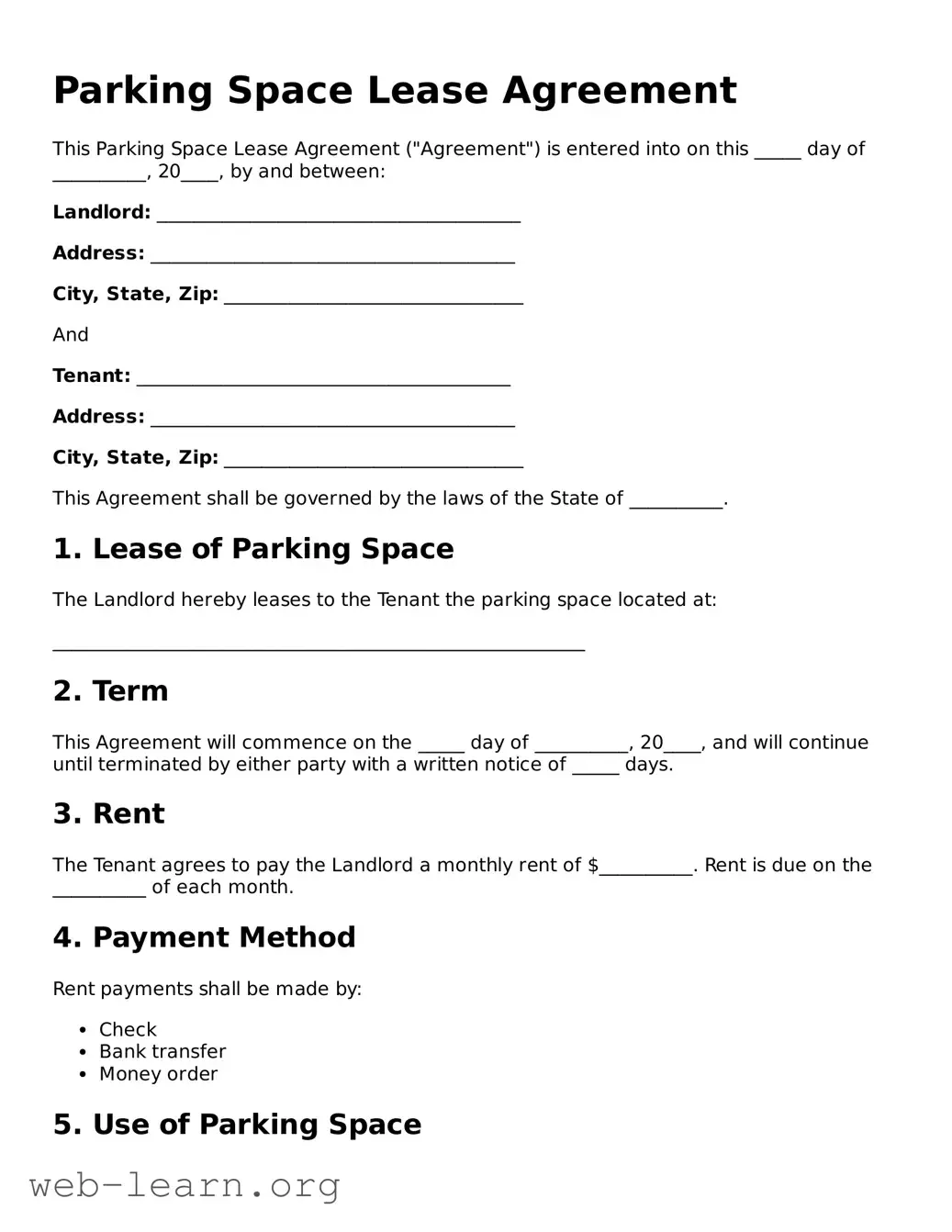Parking Space Lease Agreement
This Parking Space Lease Agreement ("Agreement") is entered into on this _____ day of __________, 20____, by and between:
Landlord: _______________________________________
Address: _______________________________________
City, State, Zip: ________________________________
And
Tenant: ________________________________________
Address: _______________________________________
City, State, Zip: ________________________________
This Agreement shall be governed by the laws of the State of __________.
1. Lease of Parking Space
The Landlord hereby leases to the Tenant the parking space located at:
_________________________________________________________
2. Term
This Agreement will commence on the _____ day of __________, 20____, and will continue until terminated by either party with a written notice of _____ days.
3. Rent
The Tenant agrees to pay the Landlord a monthly rent of $__________. Rent is due on the __________ of each month.
4. Payment Method
Rent payments shall be made by:
- Check
- Bank transfer
- Money order
5. Use of Parking Space
The Tenant shall use the parking space solely for the purpose of parking a vehicle. The parking space may not be used for any other purpose, including but not limited to:
- Storage of items
- Repair or servicing of vehicles
- Subleasing
6. Responsibilities of the Tenant
The Tenant agrees to:
- Maintain the cleanliness of the parking space.
- Park only registered vehicles.
- Comply with all local parking regulations.
7. Indemnity
The Tenant agrees to indemnify and hold harmless the Landlord from any claims, damages, or liabilities arising from the Tenant's use of the parking space.
8. Governing Law
This Agreement shall be governed by the laws of the State of __________.
9. Entire Agreement
This Agreement constitutes the entire understanding between the parties and supersedes all prior discussions or agreements related to the parking space lease.
IN WITNESS WHEREOF, the parties hereto have executed this Parking Space Lease Agreement on the day and year first above written.
Landlord Signature: ___________________________
Date: _______________________________________
Tenant Signature: ____________________________
Date: _______________________________________
